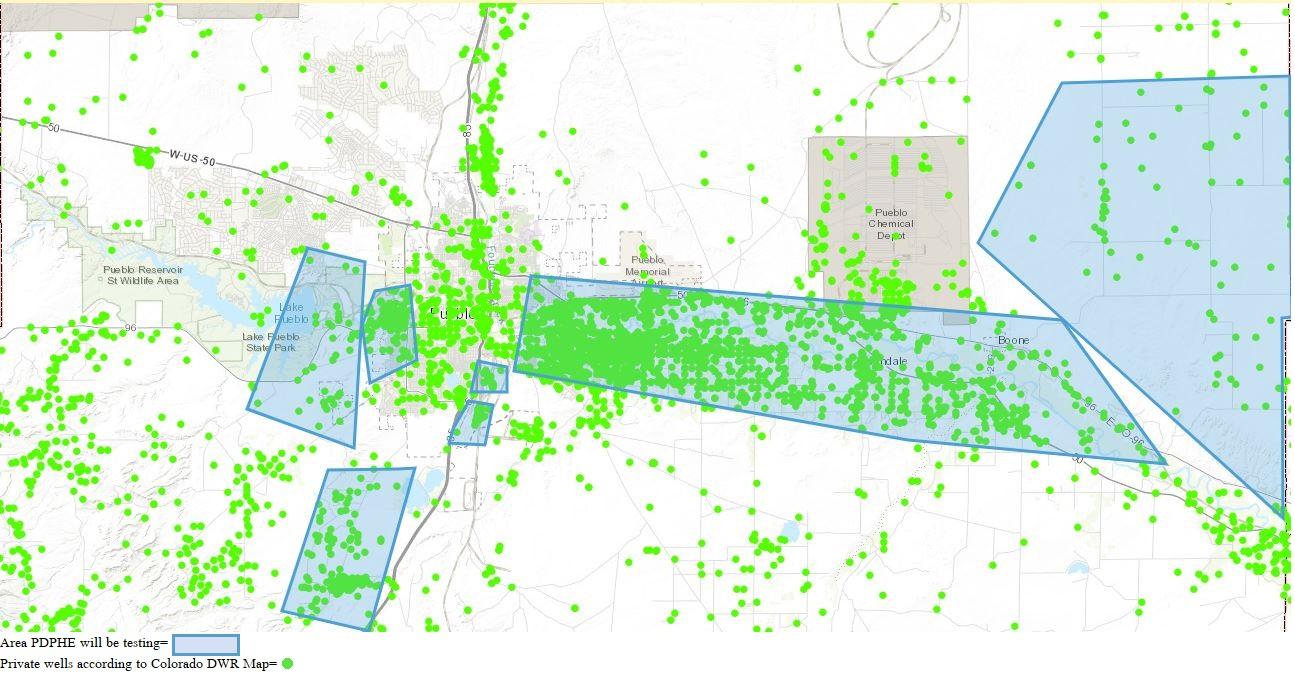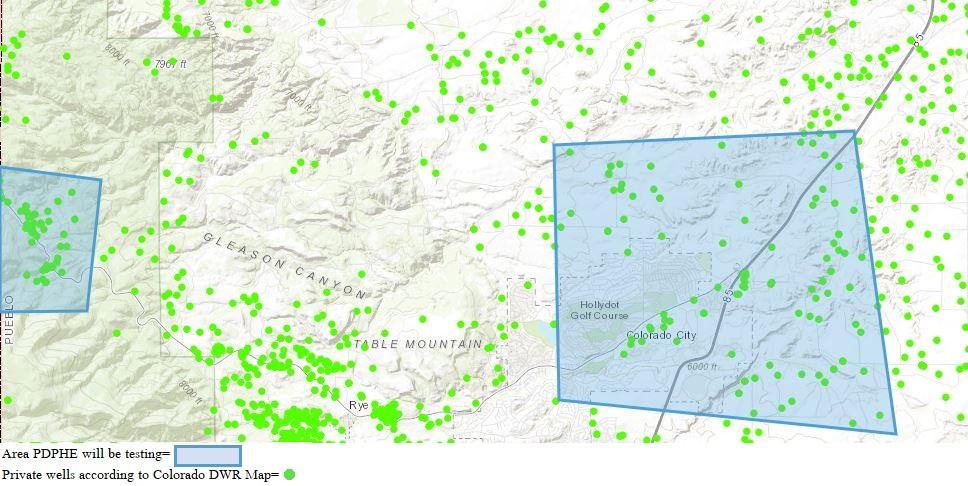
PFAS or Per- and Polyfluoroalkyl Substances are often found in non-stick cookware, waterproof fabrics and other uses. These common man-made "forever" chemicals may cause long-term health problems.
Free testing for the contaminants is currently available for a limited number of eligible private water wells in Pueblo County. Scott Cowan of Pueblo Department of Public Health and Environment said the sites chosen for this study are focused on the county’s industrial corridor and places exposed to firefighting foam.
“That historical area where we knew that the potential PFAS contamination could be,” he said. “Also in areas where we have the largest concentration of folks using wells for drinking water or for irrigation.”
Eligible property owners can apply for the program until testing ends in June or a total of 165 wells have been enrolled. Cowan said the results, which take about 60 days, will be sent to each owner.
If PFAS are found in a particular well, there are filtration systems that can reduce or remove the toxins Cowan said, as long as the well owner chooses a system that meets the correct specifications.
“Our focus was really to help empower them to take some simple steps to help reduce the effects or potential effects of PFAS contamination on their family's health,” he said
Sampling is taking place in public locations too as part of the current project. “We've looked at the (Lake Pueblo) Reservoir, the Arkansas River, sites on Fountain Creek, Lake Beckwith, and pretty much any large surface water body throughout Pueblo County,” Cowan said.
Because PFAS have been in use for nearly a century they are found in most places around the country, according to Cowan. Some previous testing of public drinking water and fire district systems in Pueblo has shown contamination below the levels for health advisories. Surface water in the region has also been tested by the Environmental Protection Agency and the state.
“We anticipate that we have some issues there (in the study area) that we would like to really kind of look at and get our arms around,” he said.
Cowan said a grant opportunity from the state opened up the possibility to learn more about whether PFAS are in Pueblo County’s groundwater resources, and a report will be compiled using the results later next year. He said the study was not triggered by any specific incident like high levels of the chemical found in the bloodwork of Security-Widefield residents or concerns about firefighting foam at Peterson Air Force Base in El Paso County.
This study does not include testing for other contaminants.
Residents on municipal water systems are not eligible to apply for the free testing. Preference will be given to private well owners within the specific study areas. Eligibility forms and more information including filter options are at the Pueblo Department of Public Health and Environment’s website or by calling (719) 583-4307 (Extension 8).









